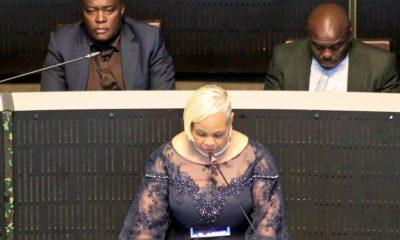Business
South Africa’s Plan to Cut Electricity Prices by 2026: What It Means for You

A glimmer of hope in a dark time
South Africans have grown used to bracing themselves for bad news whenever Eskom announces tariff changes. In recent years, electricity prices have risen far faster than inflation, leaving many households and small businesses struggling to keep the lights on. Now, for the first time in years, there is talk of relief.
Energy Minister Kgosientsho Ramokgopa has confirmed he is leading a review of South Africa’s electricity pricing policy. His aim: to find a way to make power more affordable for families and industry while still ensuring Eskom stays financially viable. Eskom CEO Dan Marokane says the review should be completed by June 2026, with work already underway.
Why electricity costs so much
For decades, electricity in South Africa was deliberately kept cheap to attract investment and support industry. That model backfired. Years of underpricing left Eskom cash-strapped, forcing steep hikes in recent years to cover costs.
The utility’s latest retail tariff plan, introduced in April 2025, has worsened the squeeze on low-usage households. While Eskom reported an “average” increase of 12.74%, the reality is that smaller consumers saw much bigger hikes.
Energy analyst Chris Yelland’s calculations revealed the pain. A two-person home using 500 kWh a month now pays nearly 30% more. Single households using less than 300 kWh face a 34% jump. By contrast, heavy users consuming 1,500 kWh a month saw their bills drop by over 8%. For poorer households, this shift feels less like a price plan and more like a penalty.
Outrage over secret settlements
As households struggled to absorb these increases, the National Energy Regulator of South Africa (Nersa) quietly settled a dispute with Eskom in July 2025. The deal allows Eskom to recover R54 billion through future tariffs after errors in a previous revenue determination.
Civil groups were furious. OUTA called the decision unaffordable and slammed the secrecy of the process, warning that Eskom had not yet tackled corruption and waste. Afriforum went further, questioning whether the deal was constitutional. Both groups accused the regulator of betraying the public trust by hiding a decision that will hit consumers directly in the pocket.
What the review hopes to achieve
Ramokgopa’s review is being framed as a chance to reset the country’s approach to electricity pricing. Eskom insists that sustainability must remain part of the solution, as the utility’s role in securing South Africa’s energy supply is not going away anytime soon.
The minister has said he wants a “country approach” that balances affordability for households, competitiveness for businesses, and financial stability for Eskom. If successful, the policy could reshape how tariffs are structured, potentially reversing years of sharp increases for smaller consumers.
Will households see real change?
The promise of cheaper electricity by 2026 is welcome news, but many South Africans remain sceptical. After years of corruption scandals, technical failures, and shifting policies, trust in both Eskom and its regulators is thin.
The real test will be whether the review can deliver a system that eases the pressure on households without plunging Eskom deeper into crisis. Until then, South Africans will continue to pay some of the steepest bills in recent memory, waiting to see if government promises finally translate into relief.
Also read: ATM Scam Panic in South Africa: What Banks Say You Should Really Worry About
Follow Joburg ETC on Facebook, Twitter, TikT
For more News in Johannesburg, visit joburgetc.com
Source: MyBroadband
Featured Image: Moneyweb



















